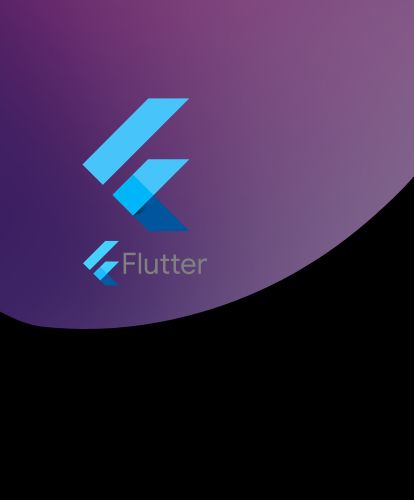

In today's digital world, mobile applications have become an integral part of every enterprise. To meet the evolving needs of businesses, developers need a robust framework that enables them to build high-quality apps efficiently. Flutter, an open-source UI toolkit developed by Google, has gained significant popularity in recent years for its ability to create beautiful, fast, and cross-platform mobile applications. In this article, we will explore why Flutter is the ideal choice for building your next enterprise mobile app.
Flutter is a powerful and versatile framework developed by Google that enables developers to create high-quality, native applications for various platforms using a single codebase. It has gained significant popularity among developers due to its ability to build visually appealing and performant applications. One of the key advantages of Flutter is its use of the Dart programming language, which is specifically designed for building user interfaces. Dart is known for its simplicity and ease of learning, making it accessible to developers with different levels of expertise.
With Flutter, developers can build applications that run seamlessly on mobile devices, web browsers, and even desktop platforms. This cross-platform capability eliminates the need to develop separate codebases for each platform, saving time and effort. Flutter uses a reactive programming style that enables the creation of smooth and responsive user interfaces, resulting in a delightful user experience. It also offers a rich set of customizable UI components, called widgets, which can be easily composed to create complex and beautiful app interfaces.
Flutter's "hot reload" feature allows developers to quickly see the changes they make in the code reflected in the app's interface, significantly speeding up the development process. This iterative development workflow promotes rapid experimentation and iteration, enabling developers to refine their apps with ease. Furthermore, Flutter provides a comprehensive set of development tools, including an integrated development environment (IDE) called Flutter Studio, as well as extensive documentation and a supportive online community.
Overall, Flutter provides a robust and efficient framework for developing cross-platform applications with a native-like performance and appearance. Its combination of a powerful programming language, a rich set of UI components, and excellent development tools makes it an attractive choice for developers seeking to build high-quality apps for a wide range of platforms.
One of the key advantages of Flutter is its ability to facilitate cross-platform development. Traditionally, developers had to build separate apps for Android and iOS, leading to increased development time and effort. However, Flutter uses a single codebase, allowing developers to create apps that work seamlessly on both platforms. This significantly reduces development costs and accelerates time-to-market for enterprise mobile apps.
Flutter offers a unique feature called Hot Reload, which enables developers to see the changes they make to the code in real time. This means that developers can experiment, fix bugs, and iterate quickly, resulting in faster development cycles. The ability to instantly see the impact of code changes greatly enhances developer productivity and allows for rapid prototyping.
Flutter provides a rich set of customizable widgets and a flexible UI framework, allowing developers to create stunning and pixel-perfect user interfaces. The framework offers a wide range of pre-designed widgets, which can be easily customized to match the branding and design requirements of the enterprise app. With Flutter, developers have full control over every aspect of the app's UI, resulting in visually appealing and unique user experiences.
Flutter enables seamless access to native features and APIs, ensuring that enterprise apps can leverage the full capabilities of the underlying platforms. Developers can easily integrate device-specific functionalities such as cameras, GPS, and sensors into their apps. Flutter's platform channels allow for smooth communication between the Dart code and the native code, enabling developers to access native APIs effortlessly.
Performance is a crucial factor for enterprise mobile apps. Flutter excels in this aspect by providing a highly optimized and GPU-accelerated rendering engine. This ensures smooth animations, scrolling, and responsiveness, delivering an exceptional user experience. Flutter's performance benefits are particularly significant when it comes to complex and graphically intensive enterprise applications.
Enterprise apps often need to integrate with existing platforms and systems, such as customer relationship management (CRM) software or enterprise resource planning (ERP) solutions. Flutter offers extensive integration capabilities through plugins and packages, making it easy to connect with various backend systems and APIs. This flexibility allows enterprises to leverage their existing infrastructure while providing a modern and engaging mobile app experience to their users.
Flutter uses the Dart programming language, which offers a simple and productive syntax. Dart's reactive programming style allows developers to build responsive and scalable applications. Additionally, Flutter provides a wide range of development tools, including a rich set of IDE plugins, a powerful command-line interface (CLI), and an extensive set of debugging and testing tools. These tools contribute to a smooth development experience and aid in the creation of high-quality enterprise apps.
Flutter benefits from a vibrant and active developer community. The Flutter community constantly contributes to the ecosystem by creating plugins, libraries, and tutorials, which further enhances the framework's capabilities. The community-driven nature of Flutter ensures that developers can find support, resources, and answers to their queries easily. This active community also leads to continuous updates and improvements in the framework.
Numerous enterprises have already embraced Flutter for their mobile app development needs, leading to remarkable success stories. Companies like Alibaba, Google Ads, and Tencent have leveraged Flutter's capabilities to create high-performance and visually appealing apps. These success stories serve as testimonials of the effectiveness of Flutter in building enterprise mobile apps.
Building separate native apps for multiple platforms can be time-consuming and expensive. Flutter's cross-platform development approach eliminates the need for duplicating efforts, resulting in significant cost and time savings. With Flutter, enterprises can allocate resources more efficiently and bring their apps to market faster, gaining a competitive edge in their respective industries.
Security is a top priority for enterprise apps, and Flutter provides robust security features out of the box. The framework follows industry best practices and offers secure data handling and protection against common vulnerabilities. Furthermore, Flutter's scalability ensures that enterprise apps can handle growing user bases and increasing data loads without compromising performance or user experience.
Flutter has a promising future ahead. Google's continued investment in the framework, combined with the growing adoption and support from the developer community, indicates that Flutter will continue to evolve and mature. As more enterprises recognize the benefits of Flutter, its popularity is expected to soar, making it an even more compelling choice for building enterprise mobile apps.
In conclusion, Flutter is a game-changer when it comes to enterprise mobile app development. Its cross-platform capabilities, faster development cycles, beautiful UI, access to native features, enhanced performance, and integration capabilities make it the ideal choice for enterprises looking to build their next mobile app. With Flutter, businesses can achieve cost and time efficiency, security, and scalability while delivering exceptional user experiences. Embrace Flutter for your next enterprise mobile app, and unlock the full potential of cross-platform development.
Absolutely! Flutter's performance and robustness make it suitable for developing complex enterprise applications with ease.
Yes, Flutter is an excellent choice for startups and small businesses as it offers cost and time efficiency, allowing them to compete effectively in the market.
Yes, Flutter provides extensive integration capabilities through plugins and packages, making it easy to connect with various backend systems and APIs.
Flutter uses the Dart programming language, which is known for its simplicity and productivity.
Yes, Flutter apps can seamlessly access native device features and APIs, allowing developers to leverage the full potential of the underlying platforms.